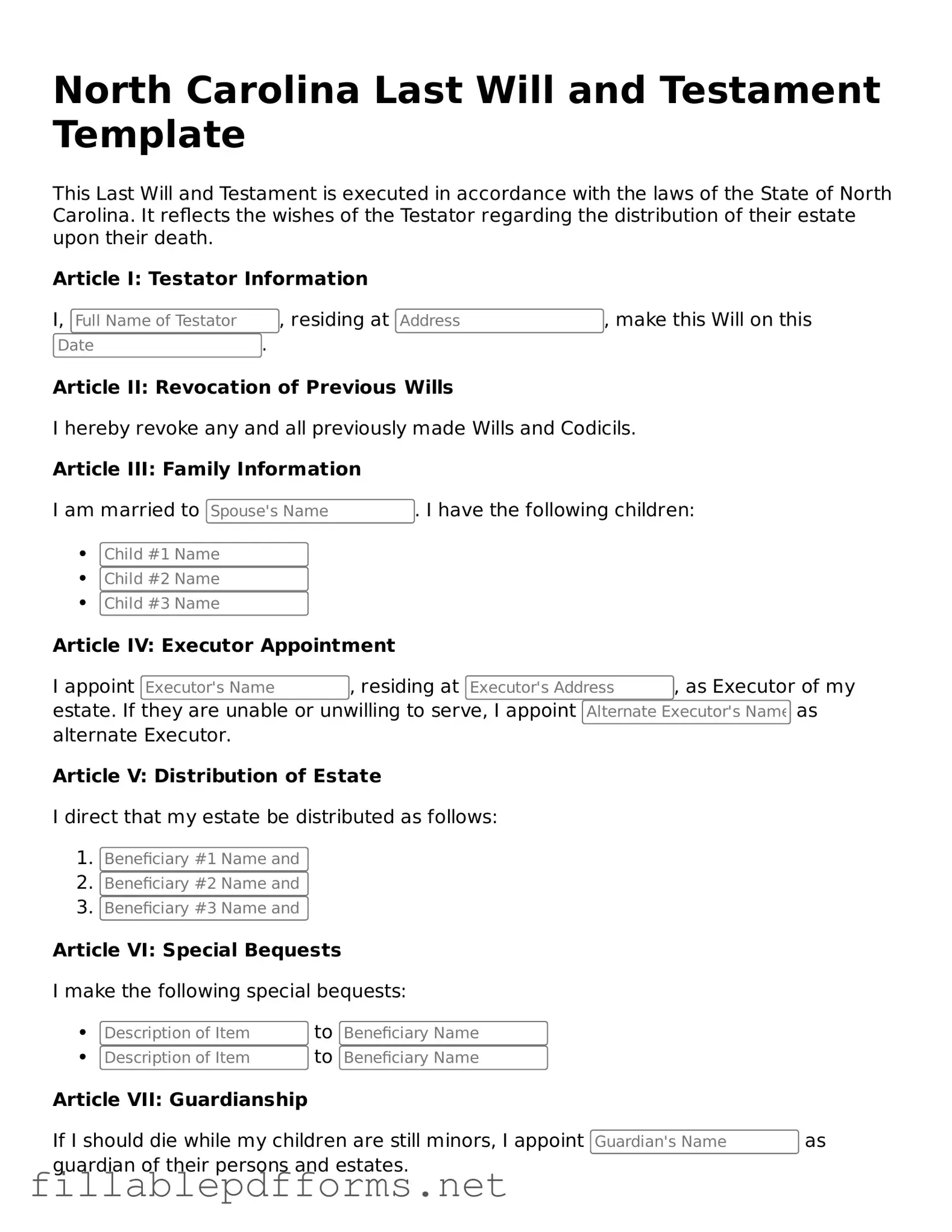Attorney-Verified Last Will and Testament Form for North Carolina State
A Last Will and Testament is a legal document that outlines how an individual's assets and affairs will be managed after their passing. In North Carolina, this form serves as a crucial tool for ensuring that your wishes are honored and that your loved ones are provided for. Understanding the specifics of this form can help you navigate the process of estate planning with confidence.
Launch Editor Here

Attorney-Verified Last Will and Testament Form for North Carolina State
Launch Editor Here

Launch Editor Here
or
▼ Last Will and Testament PDF
Almost there — finish the form
Complete Last Will and Testament online fast — no printing, no scanning.